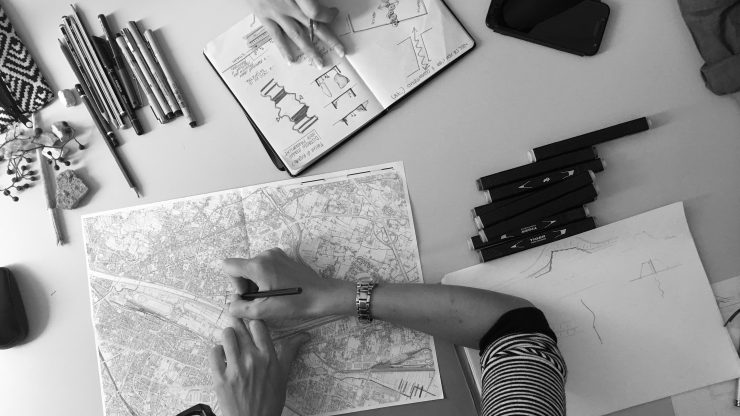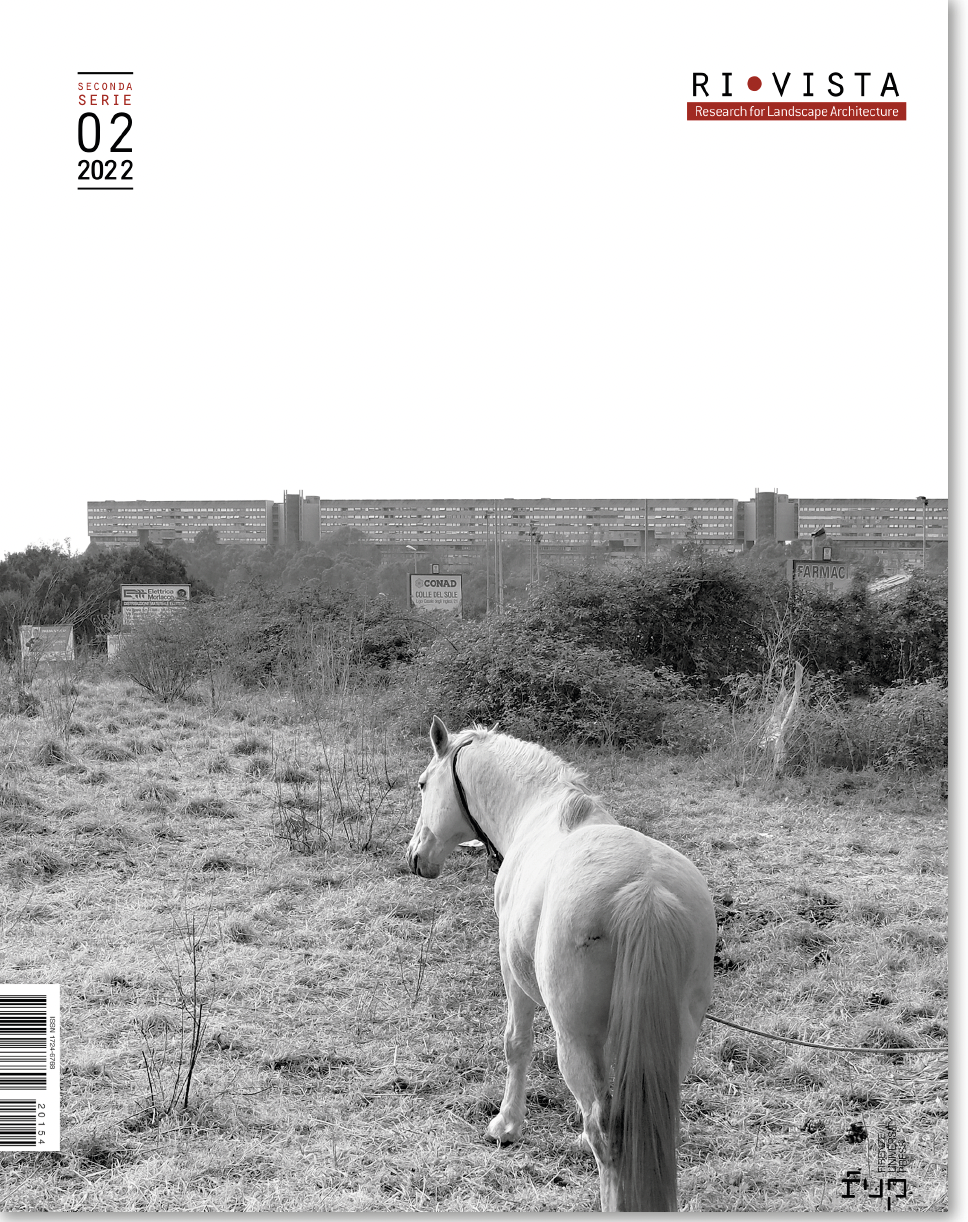Representation is a powerful tool for landscape understanding and spreading. The new issue of Ri-Vista, in continuity with the previous two, intends to explore topics related to the European Landscape Convention during the year we celebrate its twentieth anniversary. The theme of representation underlines two different levels of investigation that Landscape Representation Skills intends to explore. The first relates to the object itself, that is, the multiple forms, techniques, methods used for representation, therefore the iconographic language as an expressive tool. The second concerns interpretation, i.e. the mental models underlying the representation, which is also preparatory to the identification and evaluation of landscapes required by the Convention.
Representation is a powerful tool for landscape understanding and spreading. The new issue of Ri-Vista, in continuity with the previous two, intends to explore topics related to the European Landscape Convention during the year we celebrate its twentieth anniversary. We represent what we see, but what we see depends not only on physical perceptual abilities but also on mental and cultural superstructures. We represent what we understand. According to the German poet Novalis the artist had the task of representing the unrepresentable and seeing the invisible, perhaps the challenge of the contemporary designer lies also in this? The theme of representation underlines two different levels of investigation that Landscape Representation Skills intends to explore. The first relates to the object itself, that is, the multiple forms, techniques, methods used for representation, therefore the iconographic language as an expressive tool. In the present era, we have improved representation techniques with the use of computer programs, but has it produced a new way of seeing the landscape? The second concerns interpretation, i.e. the mental models underlying the representation, which is also preparatory to the identification and evaluation of landscapes required by the Convention. Today the representation has increasingly acquired the function of an active device, therefore a descriptive-narrative tool, not exclusively aimed at cognitive but design purposes: representing to measure, to evaluate transformations, to prefigure scenarios, etc. This issue of Ri-Vista aims to collect contributions that highlight innovative ways of reading, communicating the project and interpreting the landscape underlying ‘different’ ways of representing the landscape, also linked to “other” – geographical views, sociological, economic, etc – and capable of grasping its relational and perceptual dimension. Landscape Representation Skills is dedicated to all those interventions aimed at investigating the ability of representation to become a design tool.
Deadline to submit contributions is 7th September 2020.
See all the details here: https://journals.fupress.net/call-for-paper/landscape-representation-skills/
Download the PDF (ita/eng)
To submit your full paper, please go to our submission platform: https://oaj.fupress.net/index.php/ri-vista/about/submissions
Registration and login as Author with the Ri-Vista system is required to submit and follow the submission process online. Later, the account is necessary for following the status of your submission. The proposals have to be unpublished and written in Italian or English; the text can be of 20,000 to 30,000 characters, including spaces, title, authors, abstract, keywords, captions and references. The proposals have to include a minimum of 5 — a maximum of 10 pictures with good definition (at least 300 dpi/inch and 25 cm the smallest side) free from publishing obligations or accompanied with the specific permission.
The selected papers will be published in the thematic section of the 2|2020 issue of Ri-Vista.


